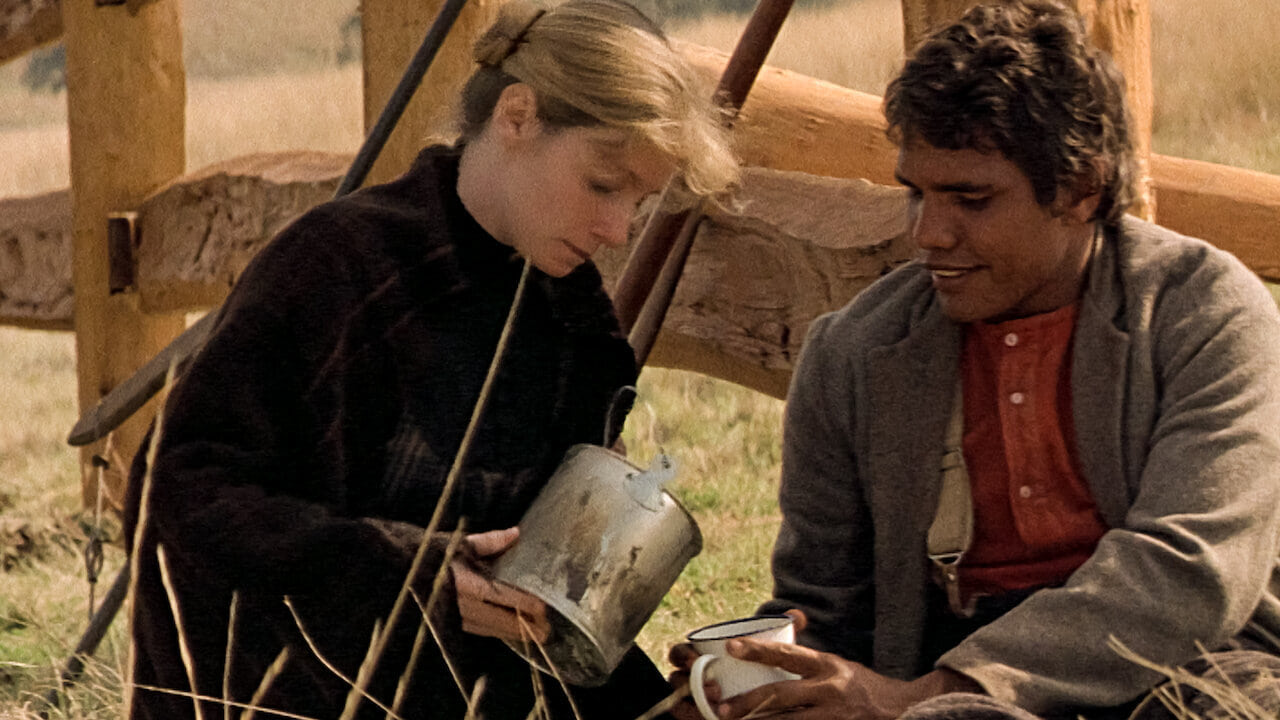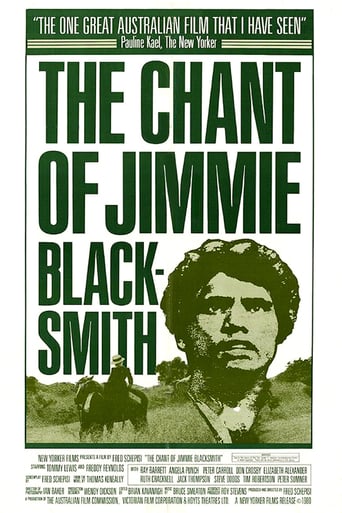

Highly Overrated But Still Good
... View MoreAn absolute waste of money
... View MoreAll of these films share one commonality, that being a kind of emotional center that humanizes a cast of monsters.
... View MoreA great movie, one of the best of this year. There was a bit of confusion at one point in the plot, but nothing serious.
... View MoreDeals with the antihero that goes over the edge...beyond obvious comprehension. Many miss the point...."he's half white." This film explore what structural racism produces, especially in that individual that seems to have the chance of crossing lines. Instead these are the individuals that are repeatedly humiliated and demeaned by those they are seeking acceptance from. This is the point of the film. It is the potential from the "half breed" that contextualizes the journey to where is own people/ family see him as a devil. He is a man gone rabid...tormented by the world he does not fit. This film is moving on many levels and provides a glimpse into a history foreign to many. A tragedy in the deepest sense.
... View More(Spoilers) Jimmy Blacksmith is a young, half-caste Australian Aborigine who has been raised into adulthood by an English minister and his wife. It is 1901 and, as presented, systemic racism is in full effect. To show concern for the Aborigines the minister is intent on "imbuing one with decent ambition." Being half white gives Jimmy an entry into the minister's world, the thinking being that the white half of him might allow him to turn out acceptably well. Jimmy goes along with the thought and tries to fit into the white world, the outcome being that he is tragically caught between two cultures. The minister, seeing that Jimmy has applied himself to getting an education and worked hard, sends him out into the world with a letter of reference. Jimmy takes on fence building at a couple of farms and both times he is given less compensation than agreed on and then given the boot. Then he takes a position with the local police where he obligingly executes the law, even against his own people. After witnessing a monstrous miscarriage of justice he quits that job. Finally Jimmy winds up working on a sheep ranch.The movie is well paced in that with each indignation Jimmy suffers we see his change in attitude from eagerly trying to join the dominate culture to resenting the abuse he suffers because of his race. With each event I also became more indignant. The fuse was set and a sequence of events at the ranch results in a spontaneous explosion of violence. Many may want to avert their eyes during that scene. It left me with conflicting emotions. Everything that happened was perfectly understandable, but hard to condone. When the bad guy finally gets his in a movie, you can usually accept it since he was the bad guy after all. Here the people who are killed are not necessarily bad people. True, they have bought into an evil doctrine, but how many people are independent thinkers enough to buck societal norms?After the killings Jimmy goes on the lam with his brother Mort. The second half of the film deals with tracking them down. And that is not easy, since Jimmy and Mort are skilled at moving about the countryside, being able to move fast and cover their tracks. As a late attempt to stave off the massive search effort Mort and Jimmy take a hostage, a school teacher. The teacher is the unusual person who cares even to think about the problem of racial oppression and how it can lead to violence. He comments to Jimmy and Mort, "You can't say we haven't given you anything. We've introduced you to alcohol, religion, influenza, measles, syphilis, school. A whole host of improvements."The acting is solid, especially considering that playing Jimmy was Tommy Lewis' first screen appearance. The cinematography is noteworthy, with the Australian countryside being used to great effect.Being an American, English subtitles would have helped me.This is based on real events in the life of one Jimmy Governor. Any fictionalized version of real events is always a bit suspect, but this movie has the feeling of authenticity. I hope that is the case, since the movie deals with topics of such gravity that it would be a sin to rewrite the history to any great extent.
... View MoreThis film from 1978 as directed by Fred Schipisi of SIX DEGREES fame and of Thomas Keneally's book - he wrote SCHINDLER'S LIST - is a grim and disturbing depiction set during colonial 19th century Australia of a young Aboriginal man's descent into frustrated violence against his white English landowner masters. It becomes a really brutal film with explicit axe murders, especially against young girls and older women, and it is this visually distressing depiction that ultimately alienated the cinema audience. Jimmy's humiliation and cruel treatment is equally explicit and it is a relentless string of unhappy experiences by his inhumane 'boss' that ultimately causes him to crack - and hack. As a novel it is all in the mind of the reader but as a cinemascope color film, the 'running amok with an axe' sequences make any crowd want to run from the cinema. It was not seen on TV in Australia for almost 20 years and it is not likely to be either without most of the violence cut out, thus blunting the heavy handed message and the ultimate impact. Like poor Jimmy himself, the film version is in no man's land either. Past all that, it is a well made film and with an excellent cast; but very tough going. It fits well into a series of very sharply observed Australian films depicting the British colonial mind and its misunderstanding or cruelty towards Aboriginies: JEDDA in 1956, WALKABOUT in 1970, this film in 1978, RABBIT PROOF FENCE in 2001 and THE TRACKER in 2003. Each and every one are unique and excellent in their story. This one however, is the most violent which does derail its message. White urban Australia run amok is hilarious in a 1966 comedy THEY'RE A WEIRD MOB or demented boozy antics in THE ADVENTURES OF BARRY MCKENZIE in 1972... and alarmingly, horrifyingly realistic, soaked in beer bullets fists and dead kangaroos blood in Ted Kotcheff's superb 1971 drama OUTBACK. See the lot! It is a head-shaking but enlightening string of films, especially if seen in chronological order....like we all did! (may explain why our film makers in the 90s made musicals)
... View MoreThomas Keneally's THE CHANT OF JIMMIE BLACKSMITH novel works on so many levels - a period piece, as a biting satire and as a wonderfully composed drama. This film of the same name attempts to capture the poignancy and strength of the original classic novel. It achieves this wonderfully. The film is excellently acted and the violence is both well shot and vibrantly enacted. The score is great too. Also the Australian landscape - not to mention its social underbelly, was never shot with as much insight.An excellent starting point to understand such great Aussie films like the tracker and rabbit proof fence.10/10
... View More